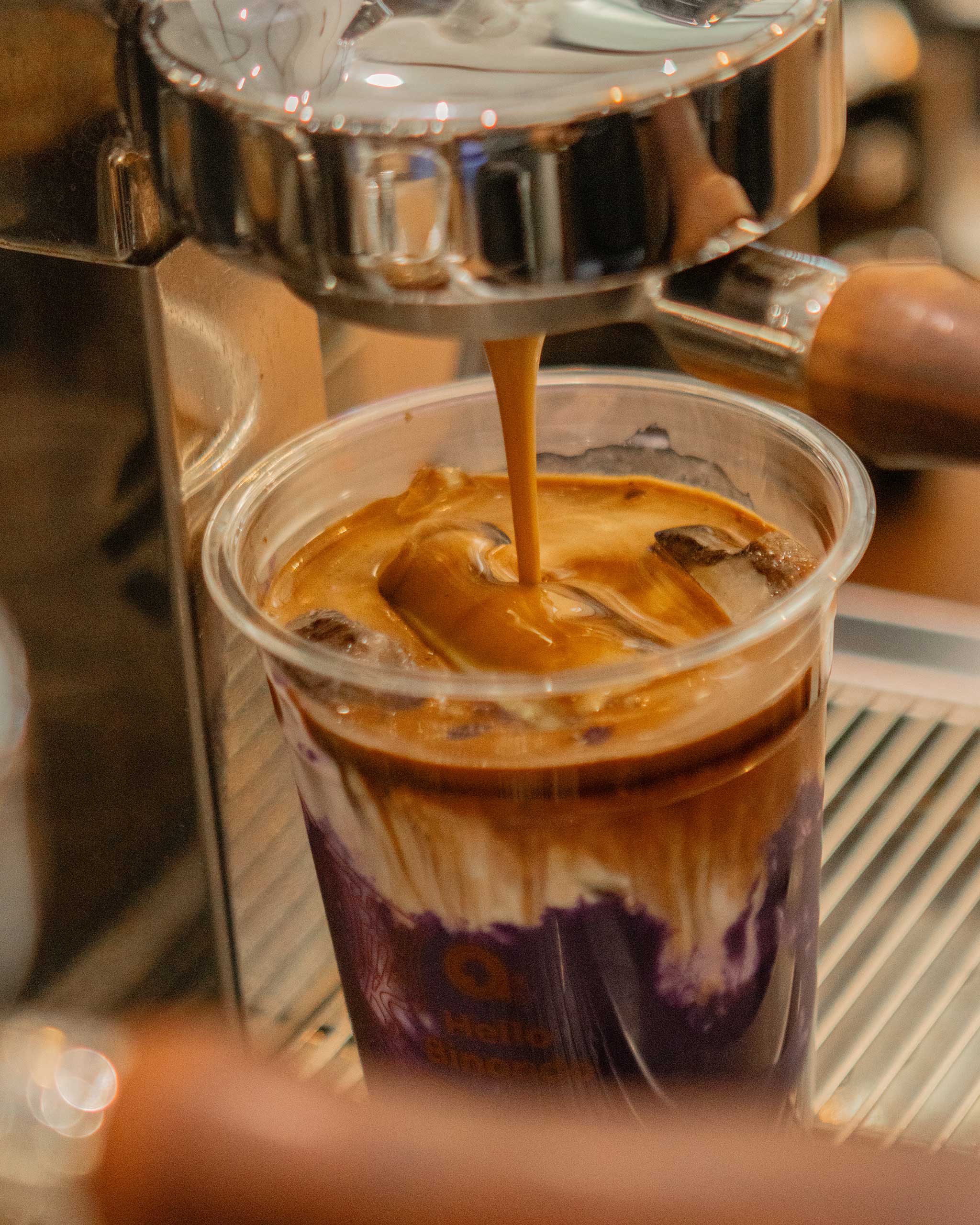The making of Apologue’s Binondo latte. Photo by Dom Pamatmat
In the oldest Chinatown in the world, culture, heritage, and community continue to thrive. On your next visit to the Binondo district, get a taste of its rich history by taking a sip of coffee.
As early as 9:00 in the morning, people fill the Binondo streets, queuing up for its well-loved restaurants and food establishments. The chatter of the crowd, the various smells and sounds, and the vibrant store displays bring its neighborhoods alive, enticing crowds to immerse, see, taste, and experience Binondo culture.
Lauded for its food scene, Binondo draws all sorts of people: local and foreign tourists, the Filipino Gen Z filming for their Instagram and Tiktok accounts, and Binondo locals who know every nook and corner of its streets. From all walks of life, Binondo is a melting pot of people and culture, creating a feeling of home even when you’re not Filipino or Chinese. Its well-worn streets, buildings, and establishments have created its own identity and community, and there is no better way to connect with these than to get a taste of Binondo.
It may be a surprise as Binondo is not known for its coffee, but three cafés are providing a space for people to learn more about its rich history. These cafés invite their guests to engage in conversations and connect with the community, all over food and a cup of coffee.
Café Mezzanine
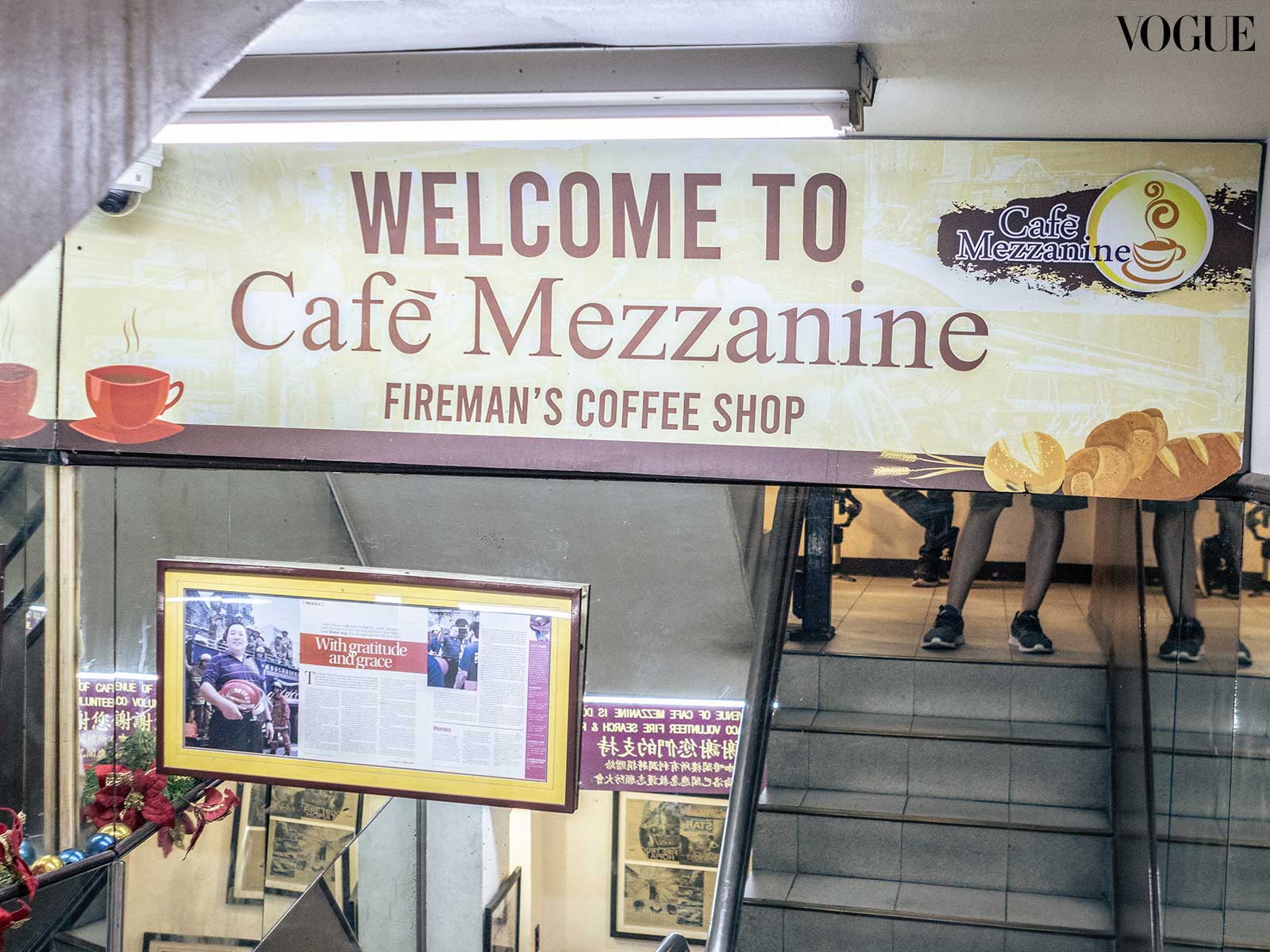
Even on a Monday morning, patrons line up the stairwell to taste Café Mezzanine’s food and offerings. Entering inside the coffee shop, firefighter helmets, photos, and other paraphernalia serve as the decor for the beloved establishment. Dubbed “The Fireman’s Coffee Shop,” Café Mezzanine’s firefighter theme is more than just a fun decor for guests to look at. It tells the story of a man’s passion, advocacy, innovation, and perseverance to become one of Binondo’s successful business owners.
Like Eng Bee Tin Chinese Deli, Chuan Kee Chinese Fastfood, Mr. Ube Rice and Noodle House, and The Great Buddha Café, Cafe Mezzanine is owned and managed by the Chua family, who brought the infamous ube hopia to the streets of Binondo. Gerry Chua, the patriarch of their family, was once a young man whose family was burdened with debt and had a passion for firefighting. While racking his brains for innovative ideas for the family business, Gerry also spent his time volunteering as a fireman. It was this occupation that would lead to the ube hopia’s breakthrough. While accompanying television host Cory Quirino through the streets of Binondo as a volunteer fireman, Gerry introduced her to his invention, the now-beloved ube hopia.
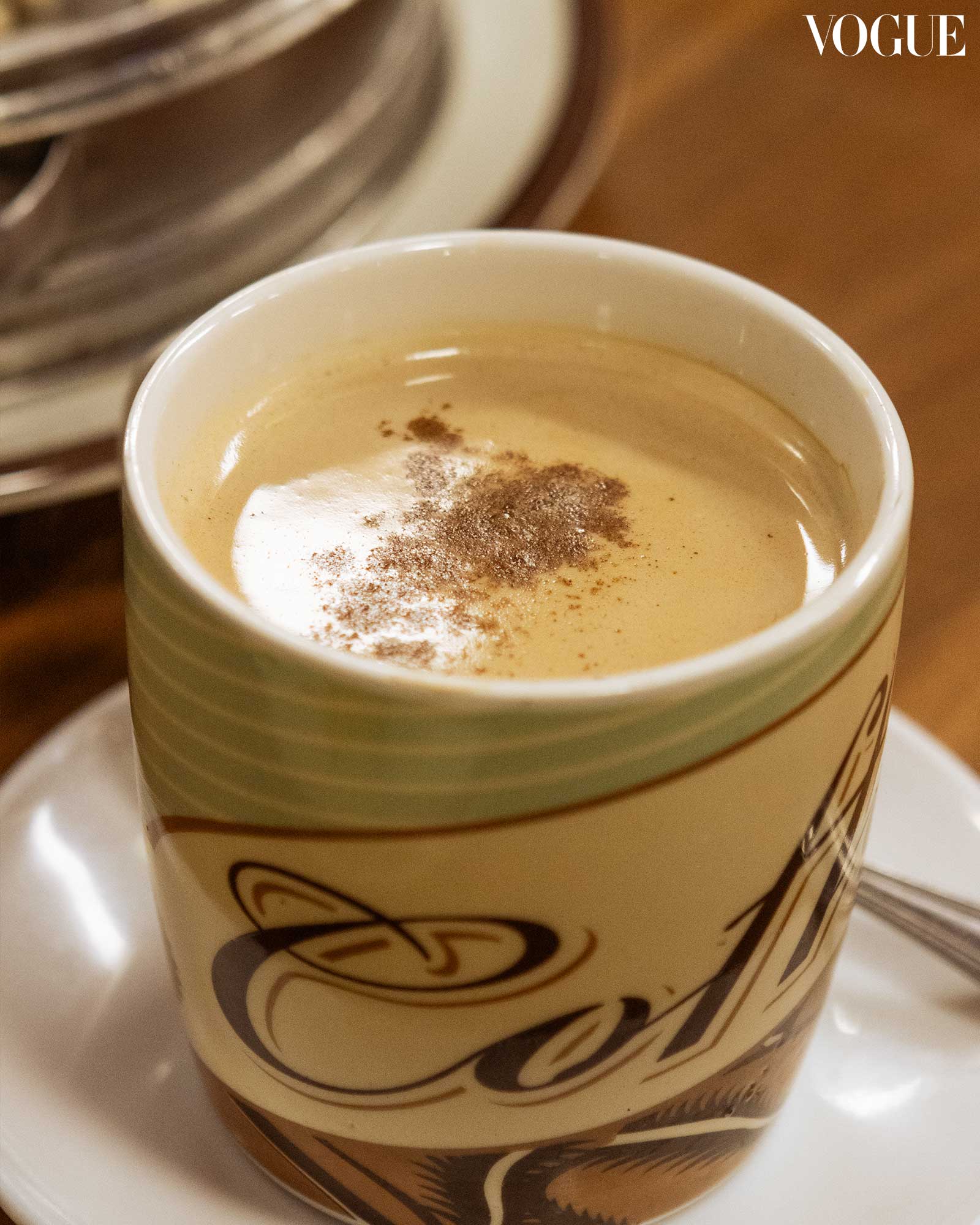
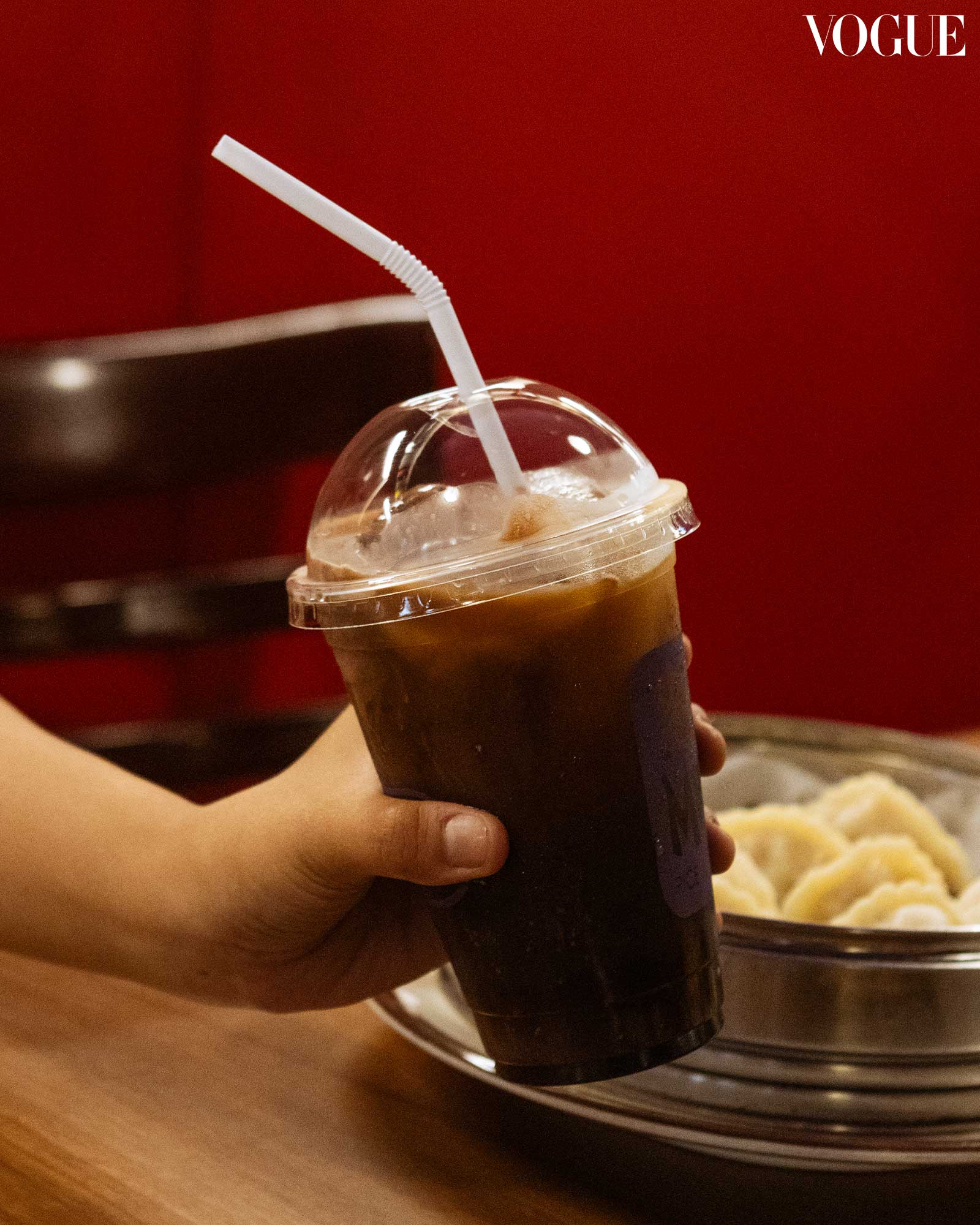
And the rest is history. Ube hopia became a Binondo staple, for locals and tourists alike. While the Chua family’s business flourished, Gerry never forgot his roots as a volunteer firefighter. Owing his success to his firefighting days, he created Café Mezzanine, where his family gives back to the community by donating all of the café’s proceeds to Binondo’s volunteer firefighting groups.
In terms of its menu offerings, Café Mezzanine offers a blend of Hokkien and Filipino cuisine. Its menu dishes are similar to Chuan Kee Chinese Fastfood’s offerings, such as the renowned Soup No. 5, which is made from a bull’s testicles. For its coffee menu, it offers the usual cafe latte, espresso, decaf, cappuccino, cafe mocha, espresso, and iced coffee, along with its Mezza blend, iced mocha java, black forest, coffee float, and black forest. The café also serves a variety of teas, healthy drinks, milkshakes, and Filipino desserts such as the Fiesta halo-halo and mais con yelo.
Apologue Coffee & Pastry
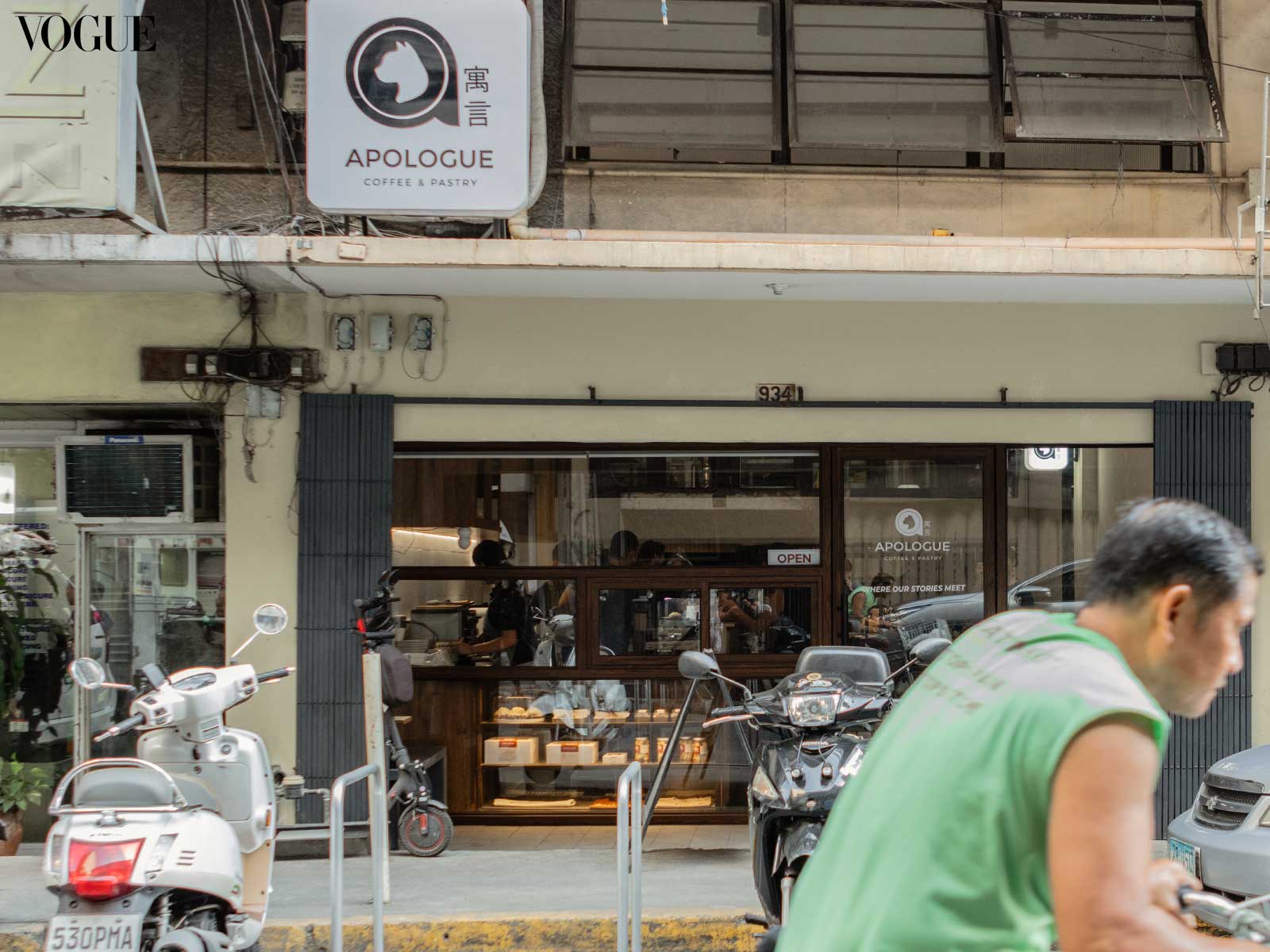
Stray cats, as it seems, have a keen sense of knowing where the best places to eat at in Binondo. Perhaps if you follow one of them, they may lead you to Apologue Coffee & Pastry, a café whose name is inspired by the stray cats that roam Binondo streets. The word “apologue” pertains to a moral story whose characters are animals instead of humans. Choosing this word as its name, the café likens itself to a stray cat, one that knows the “ins and outs of Binondo.” “We know the good places here, we know the stories of what’s happening in Binondo,” shares Justin Lawrence Uy, Apologue’s finance manager. “In Apologue’s doorway, this is where stories meet. As we share the Binondo story, we want people to share their stories over pastries and a cup of coffee.”
Situated in a former automotive and hardware shop, the café brings a modern take on the traditional Binondo flavors while paying homage to the area’s heritage and history. Stepping inside Apologue, guests are greeted by its unique interior that blends old Binondo with the new: the repurposed medicine cabinets, the old shop floor tiles, and even their commissary kitchen, which was formerly an office for previous shop owners. With the commissary kitchen overlooking the dining area and coffee bar, Apologue customers get a glimpse into the making of its delicious pastries and coffee.
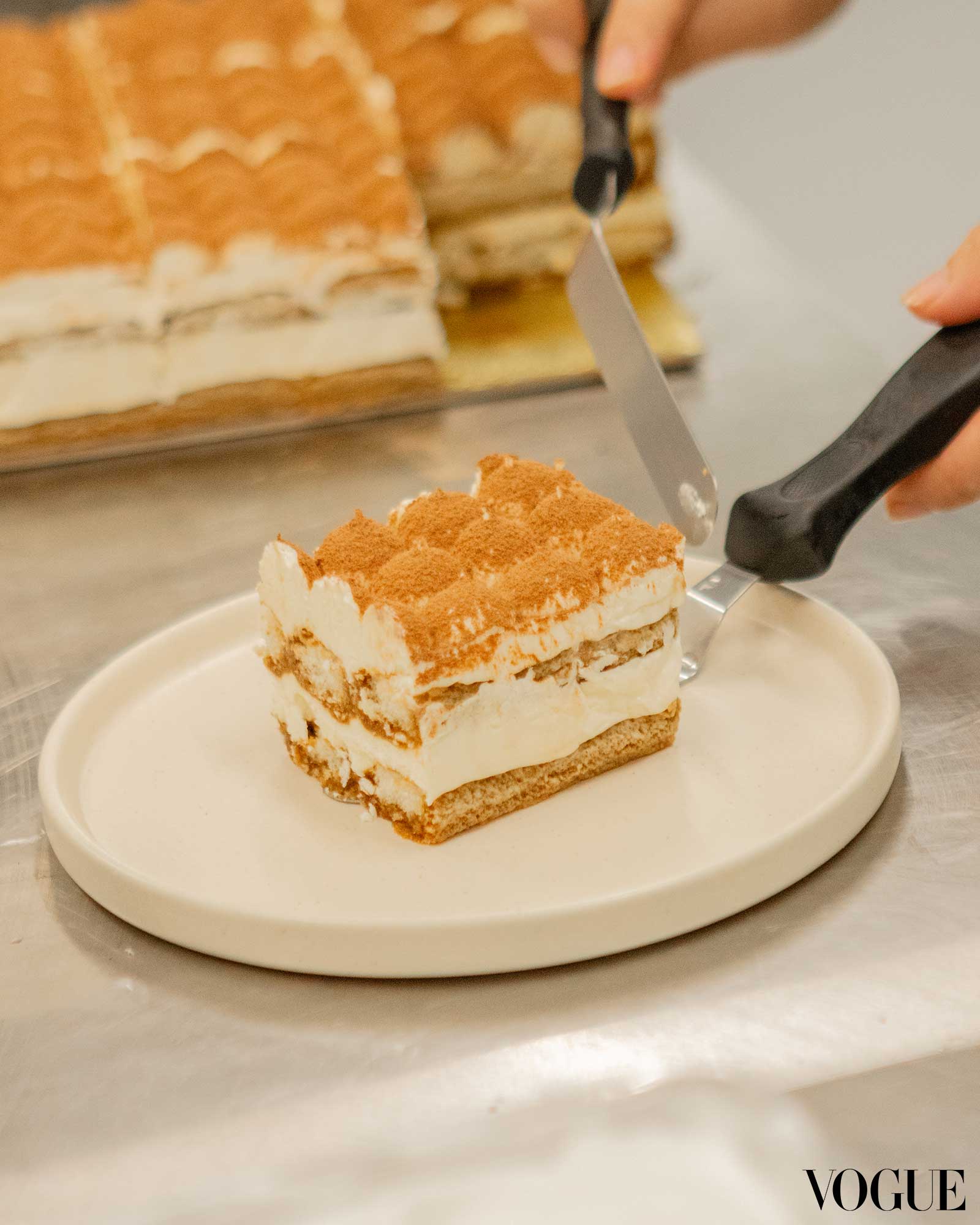
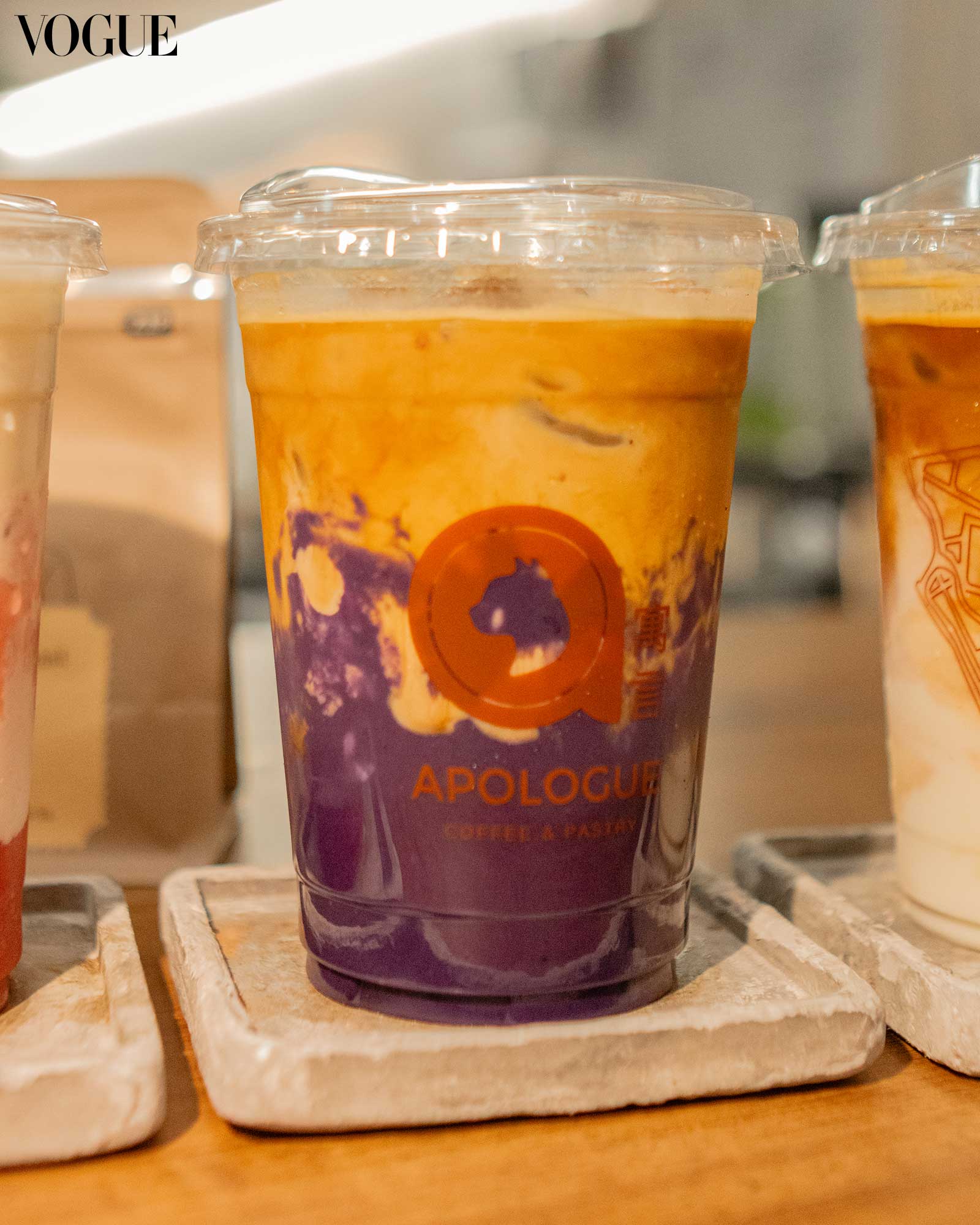
Speaking of its pastries and coffee, Binondo is also injected into every bit of its menu offerings. They even have a coffee drink called Binondo latte, which combines ube flavor and the stickiness of tikoy, a Chinese New Year cake. Strange as the combination may seem, the Binondo latte is one of their bestsellers, winning over both locals and tourists. Among their specialty drinks are also the black sesame latte and peanut cake latte.
Another traditional Chinese pastry they put a twist on is mooncake. Karisse Contreras, Apologue’s head pastry chef, created her spin on the pastry by turning it into Snow Skin Mooncake, a mooncake-shaped mochi filled with different flavors such as matcha red bean, black sesame, and white sesame. Customer favorites also include Apologue’s ube cheesecake and tiramisu, which perfectly complement its coffee drinks.
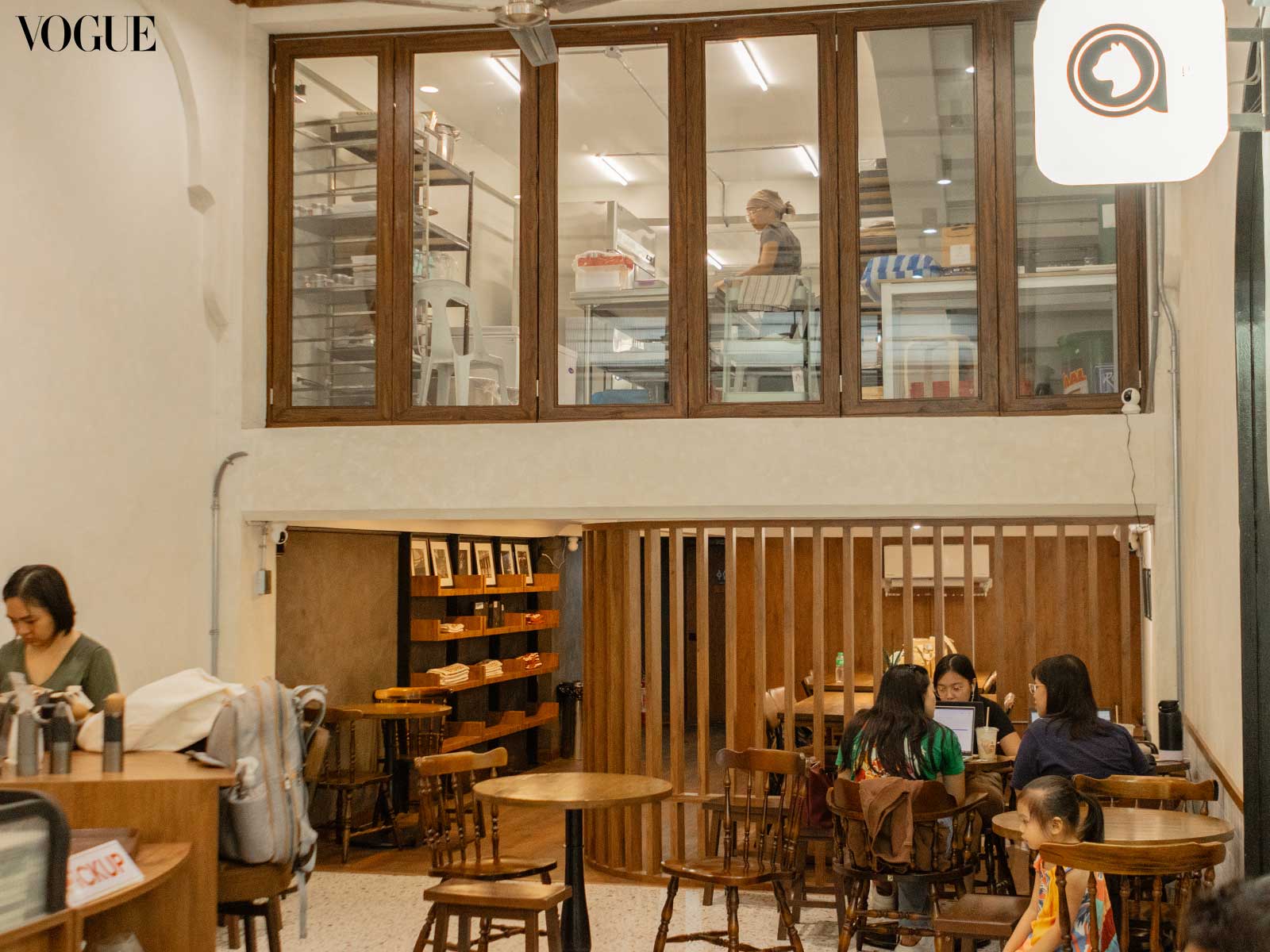
But what makes Apologue truly special is that it was created by a group of friends who had grown up together and loved Binondo. Like a stray cat, they know Binondo’s stories, and so they have created a space where people can share theirs and create new ones. Maybe that is why when you enter Apologue, you easily feel at home, whether you’ve known the Binondo streets for so long or you’re discovering its stories for the first time.
The Den Manila
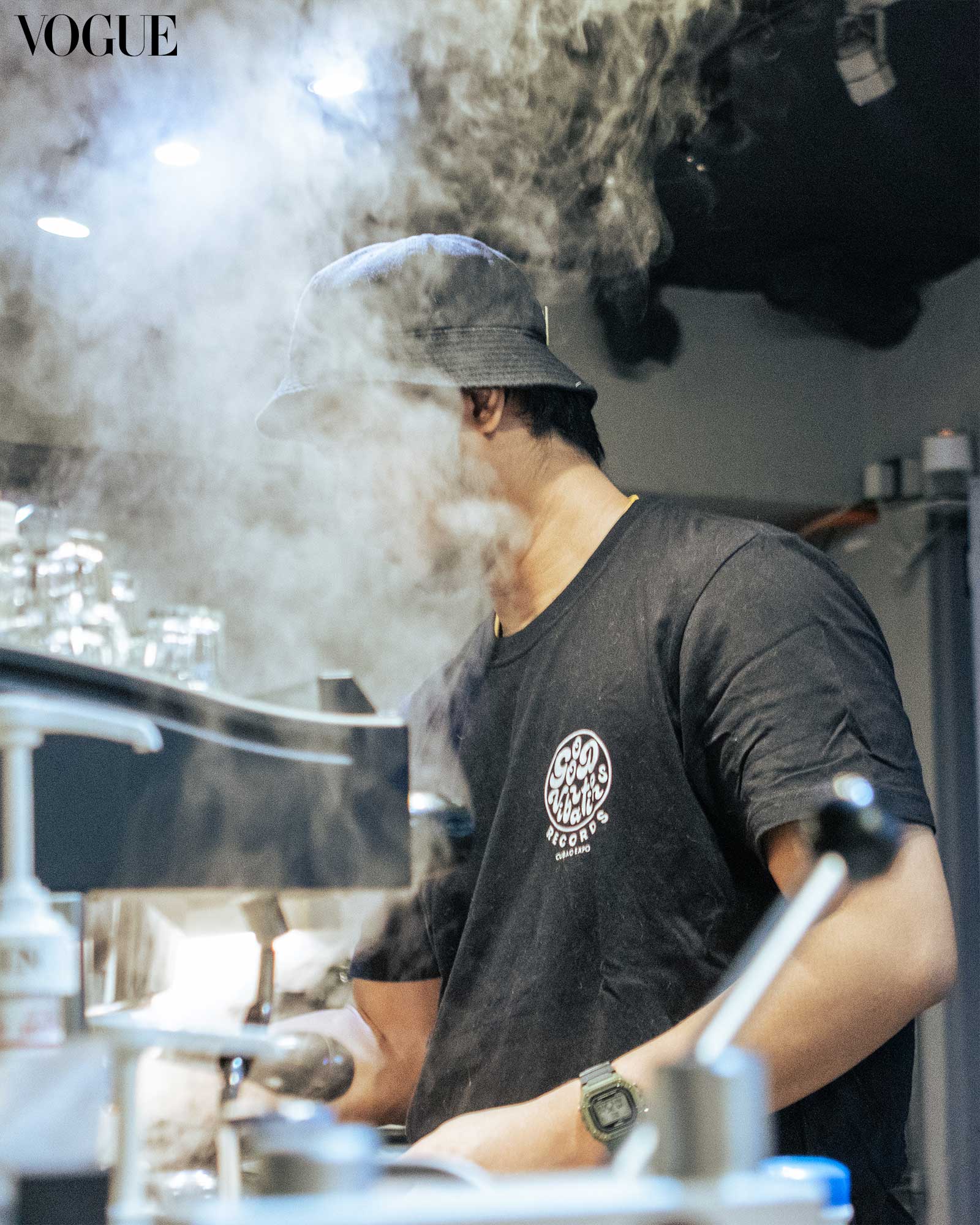
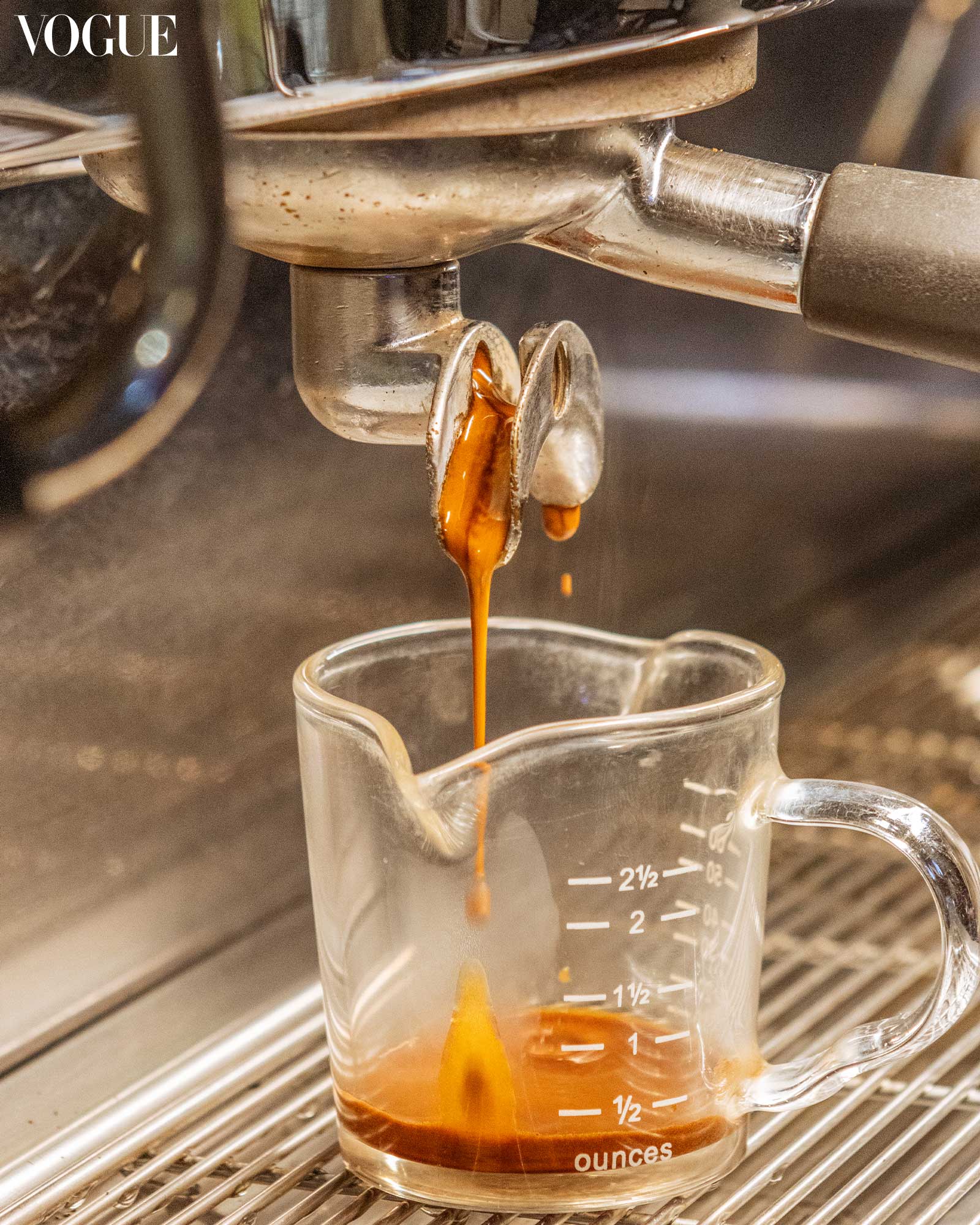
Nestled within the First United Building in Escolta, The Den Manila is a café whose walls are constantly filled with creatives, vintage or thrift collectors, university belt students, Escolta locals, and of course, coffee lovers. It’s reminiscent of a French salon; at one table you’ll see a content creator filming and taking videos of their coffee, at another, you’ll hear a writer’s current screenplay, book, or poetry. You’ll catch snippets of conversations on various topics—pop culture, queer communities, current affairs, art, coffee, or simply about life.
It is exactly what The Den Manila café owner Gabriel Villegas intended the space to be. The Den Manila describes itself as a “café and shop located in the vibrant city of Manila, dedicated to exploring the connection between coffee and culture.” Inside, you’ll find a bookshelf in one corner, and bags of coffee beans in the other, and occasionally, guests can view the art projects and exhibitions the café hosts.
While the café’s patrons indulge themselves in Escolta’s contemporary culture, they can also enjoy The Den Manila’s specialty drinks: Dirty Matcha, Dirty Chai, an espresso cold brew called the Big Black Cup, and their bestseller, Berg’s, which is a combination of espresso, coconut milk blend, and muscovado syrup. They also offer rice bowls, pasta, sandwiches, and pastries to pair with their coffee beverages.
